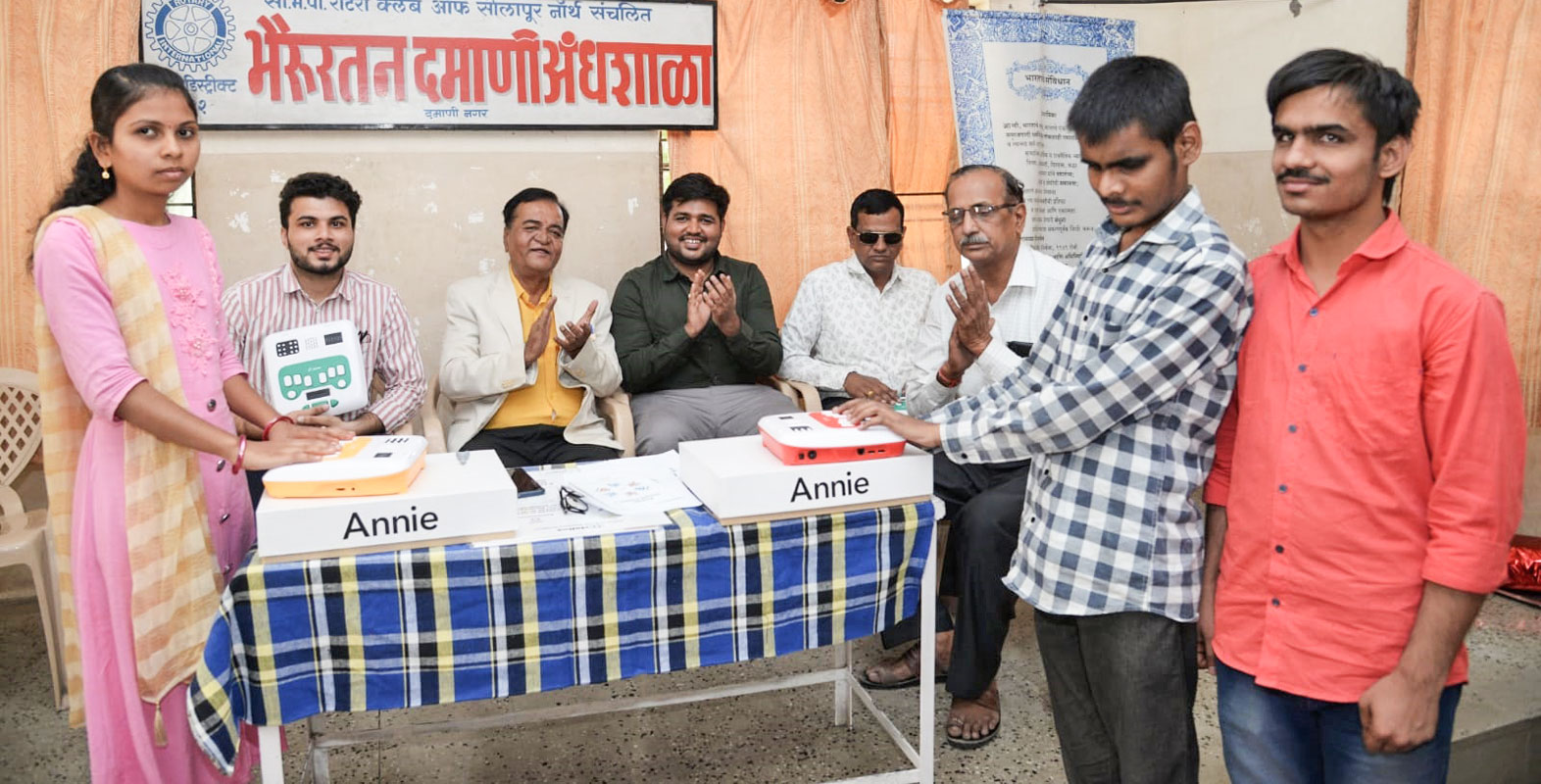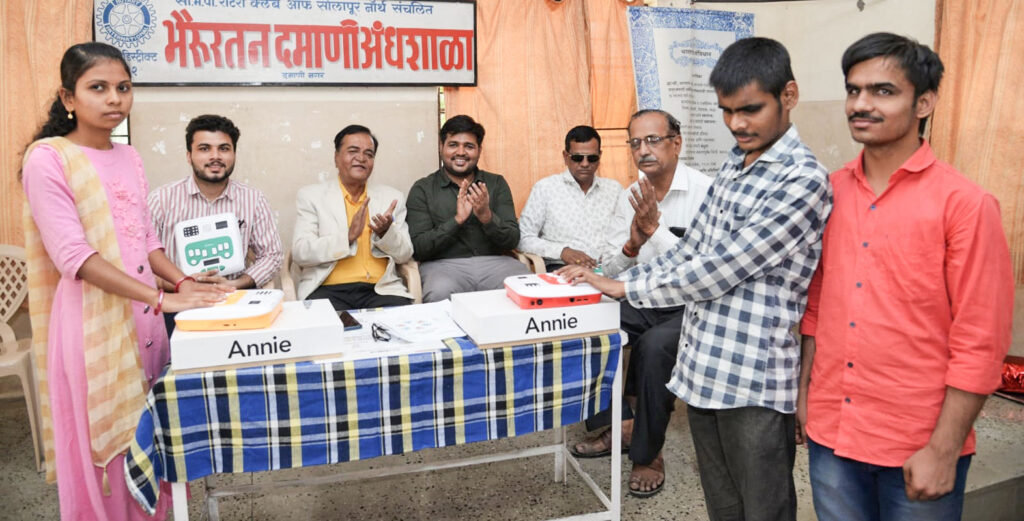After two years of shutdown due to the Covid pandemic, the Bhairuratan Damani Blind School in Solapur reopened in February and the sense of elation and relief among the 48 visually-impaired boys and girls was quite palpable. “We had provided smartphones to senior students who can handle them and through a mobile app designed for the blind, they learnt their subjects without a break even during the lockdown,” said Dr Vijay Degaonkar, president, RC Solapur North, RID 3132, which is running the Braille school up to Class 7.

This residential school for the blind has been offering free education and boarding since 1987. “The Solapur Corporation gave us the Samaj Mandir, a community building on a 2.5-acre plot of land, when they found that we are looking for land and building to educate the blind,” he recalled. Industrialist Premratan Damani who owns large parcels of land and runs a cotton mill in Solapur, along with other businesses, came forward to renovate the government building, added one more floor, and the new school was named after his late father Bhairuratan.
On an average 25–30 students pass out of Class 7 and so far, around 400 students would have completed their schooling here.
— M K Ashtagi, club’s membership director
Apart from teaching the curriculum in Braille, the school provides vocational training such as making agarbattis, candles, office files and envelopes. “In 2021, we installed four handlooms (legless looms) that are disabled-friendly and can be operated by the visually- impaired students. Household accessories such as table linen, bathroom mats, curtains, upholstery and other niche garments are weaved by using the waste and discarded textiles,” he said.
During festivals and special occasions like Diwali, Independence and Republic Days, “we look forward to the cultural programmes hosted by the students. It is lovely to watch the dedication of these sightless children as they perform with great enthusiasm,” said Dr Degaonkar. “While we have a capacity to accommodate 80 students, due to the pandemic the number has dropped to 48.”
While the club’s IPP Poonam Deodas donated two handlooms (each worth ₹60,000), two other members, Dr Siddeshwar Wale and Anand Sadhul sponsored the other two weaving units. “On an average 25–30 students pass out of Class 7 and so far, around 400 students have completed their schooling here,” said M K Ashtagi, club’s membership director. Satisfied with the school’s performance, the state government has donated nine digital computer programmers worth around ₹9 lakh which can convert data (words, arithmetic) into Braille. “These portable digital machines will enhance the knowledge of students as they can now source diverse content from the internet and refer hundreds of books across genres from the library. This will facilitate better understanding of their subjects,” said Dr Degaonkar.

Headmaster Prakash Darshanale, a former student, runs the school with six teachers whose salaries are paid by the state government. When the students pass out of the school, the headmaster helps them to get admission in other mainstream schools and “after graduation, they are given MSCIT (Maharashtra State Computer Internet Training) certificates to help them get employment.” Damani School takes care of the daily expenses, tuition fees of its former students till graduation. They are allowed to stay in the hostel while pursuing higher education as the school gets regular donations from the public and corporates. The relationship with the school is lifelong as the institution helps graduate students find jobs and also solemnises their marriage with liberal financial assistance for them “after finding a suitable alliance through networking,” he adds.
“The club meets the monthly expenditure of ₹40,000–₹45,000 for the school through member contributions, public donations and funding from corporate houses. Also, donor Premratan’s family contributes at least ₹2 lakh for the school each year,” says Ashtagi. All the 75 members of the club, formed in 1974, contribute each month for the administrative cost of the school. “Many of the school’s alumni are now in top posts in district collectorate offices; while some have excelled as engineers and government servants,” he said.

Sharing an anecdote, he says, “a few years back, parents of Atul Thakur, now studying in Class 7, were devastated as their son could not get admission in a school. But a group of teachers from the Damani School, during a visit to Thakur’s village in Barshi taluk, convinced his parents to let him go and stay in their boarding school which is around 50km from their place.” Now Thakur is a top ranker and also a district chess player. “His parents are really happy that their son’s future is now secure.”
Another permanent project of the club, Radhakisan Fomra Deaf and Dumb School which it took over from a charitable trust in 1977 has 87 special children on its rolls.






